When someone just won’t stop talking about a film, it’s safe to assume that it was the last thing he or she saw. However, I went to the theater to see Bonhoeffer: Pastor, Spy, Assassin (2024) a few months ago, and I still think it’s incredibly powerful. I’m still telling everyone about it. The film sticks with you. It urges you to do something to make a difference. The lesson learned? Stand up for principle, even when you’re doing it alone.
A true story, Bonhoeffer: Pastor. Spy. Assassin. by Angel Studios puts the spotlight on Dietrich Bonhoeffer (1906-1945), a young German pastor full of quiet strength and courage. Unstoppable for the cause of Christ, he risked his life and reputation for the Jewish people effected by Nazi Germany’s rule.
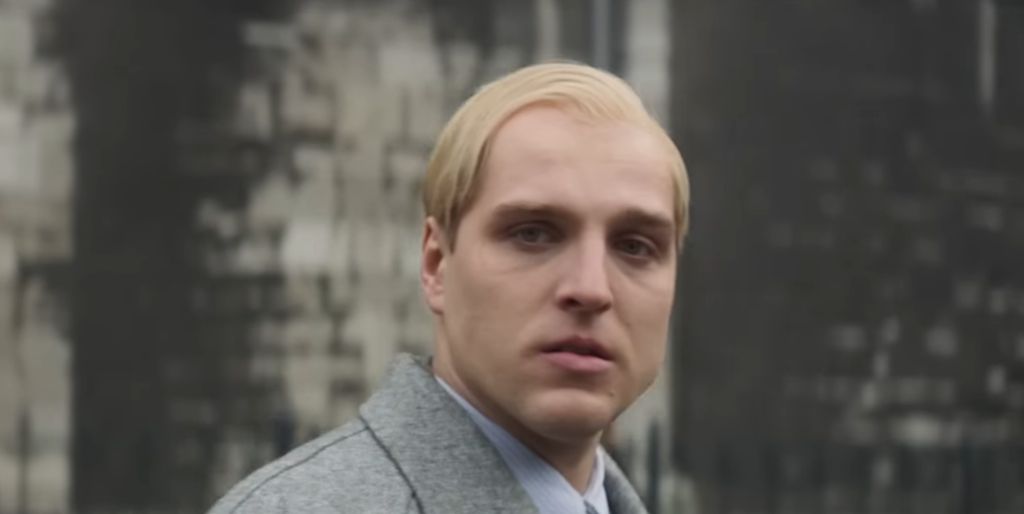
So for those who enjoy adventure, historical drama, and high-powered doses of inspiration, Bonhoeffer will be a winner, albeit an emotionally heavy one. (There’s only one instance of profanity, but violence and tense, startling scenes make it PG-13.) Definitely on the weighty side, scenes involve Bonhoeffer repeatedly getting his teeth knocked in and his face bashed for his beliefs. Themes include antisemitism and Hitler’s grotesque purging of the German church. Be aware that if you’re trying to judge Bonhoeffer by the trailer, it implies more action than the movie really has. Yet it’s very, very worth the watch.
Bonhoeffer makes a ginormous effort toward authenticity. The costumes, hair, and makeup are nearly perfect, keeping the feel of the era consistent. No one looks as if they are only playing dress-up. The quotable dialogue bursts with intense drama—sometimes a little over-the-top, it has to be admitted. One line that seems to have caught everyone’s attention is the main character’s statement, “My country was invaded from within!”
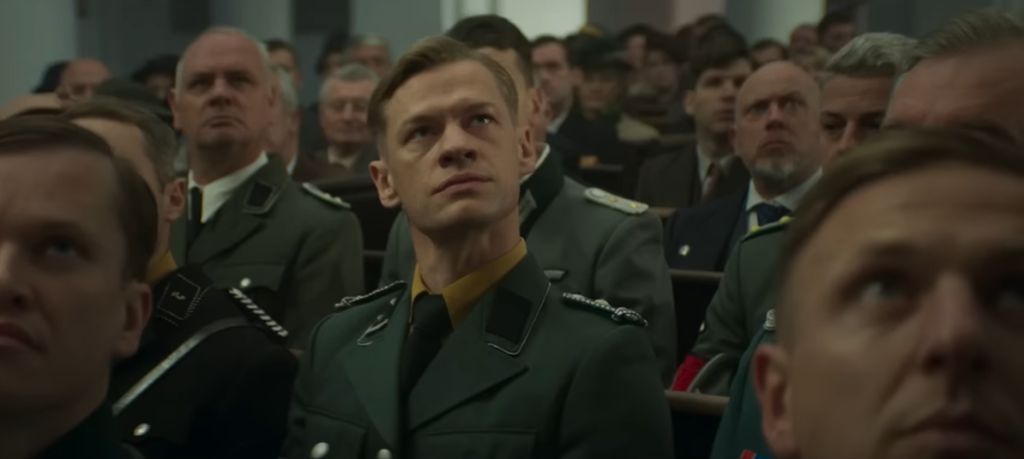
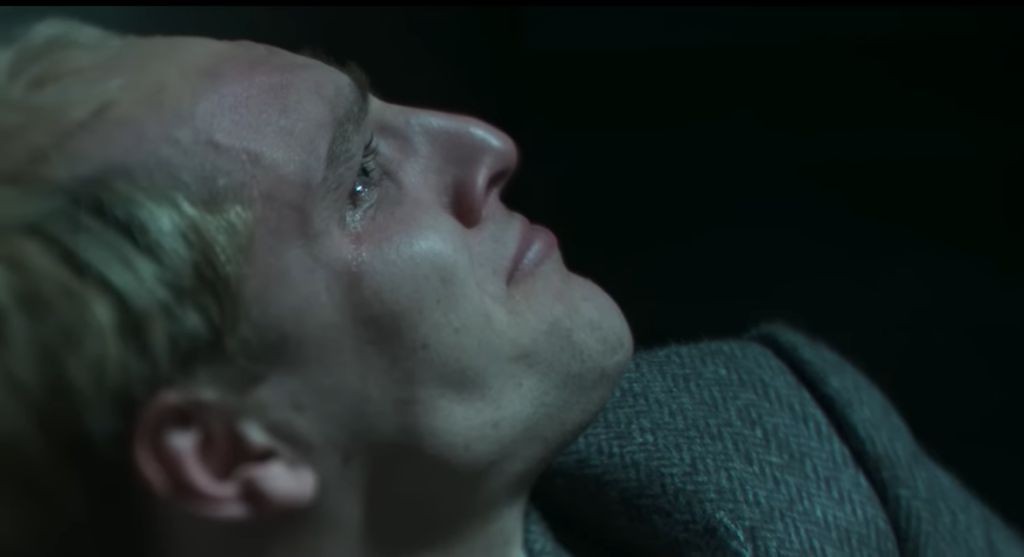
The basically all-male cast is headed by Jonas Dassler as the title character. His rendition of Dietrich Bonhoeffer is totally likeable and genuine—never pious. And it’s a plus that Dassler can act. His performance is exceptionally solid, and he delivers his lines with a forceful softness. The supporting cast shimmers with talent, adding much strength to film’s quality foundation. We see good character development in actor August Diehl’s vinegary pastor, as well as in Greg Kolpakchi’s spiteful German officer.
Fear of the unknown sounds like a drum roll from opening to end credits. Told in flashback form, the film shows Bonhoeffer as a child coping with his brother’s death, then as a young man studying theology, next taking a dangerously firm stand against the Nazis from the pulpit. After aiding the escape of Jews and briefly discussing a plot to assassinate Hitler, he is arrested by the Nazis and sentenced to death.
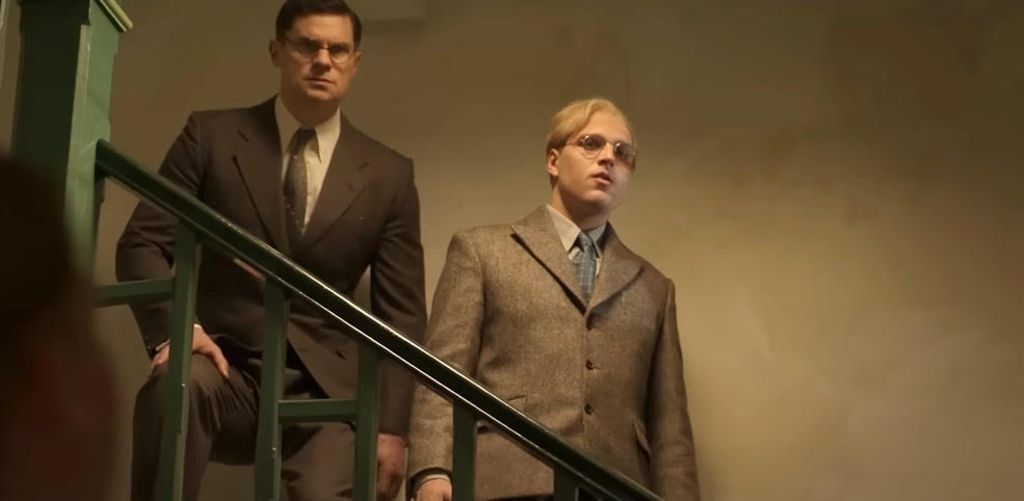
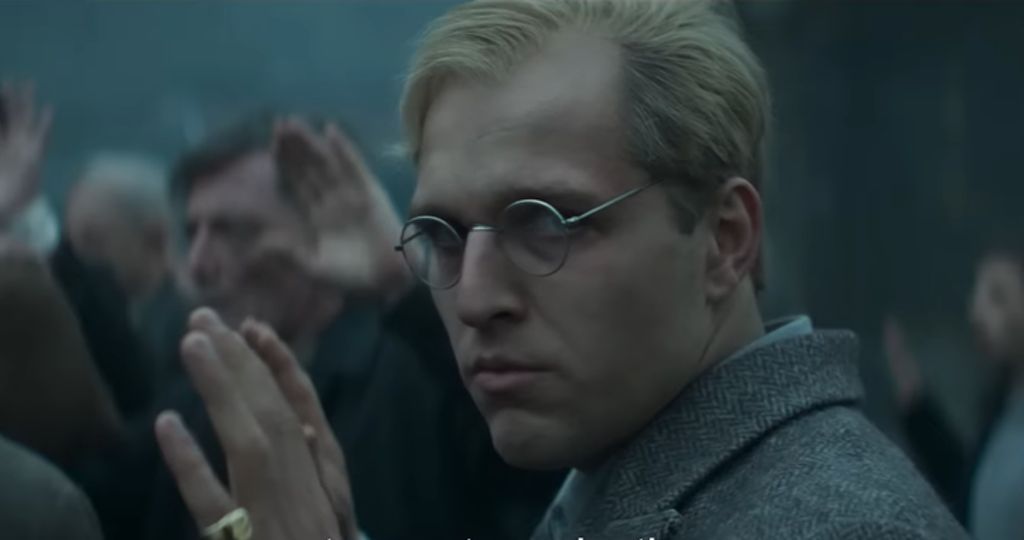
Harlem plays a pivotal role in the storyline. The most-fun scene in the movie occurs when Bonhoeffer’s African-American friend, Frank Fisher (David Jonsson), introduces him to jazz music in an all-black nightclub—which, not to worry, isn’t a risqué scene. Here Bonhoeffer grows accustomed to befriending a group of people considered by others to be outcasts. Frank tells him, “Hate comes in every color”. This lesson comes into play when Bonhoeffer feels called to aid the Jewish people.
Bonhoeffer discusses the Nazi’s horrific treatment of the Jews more in an emotional than graphic way. In one scene, Bonhoeffer is shown Hitler’s version of the “Bible” and how the Ten Commandments had not only been changed, but expanded. Bonhoeffer exclaims, “My heart is broken!” At this, a friend advocates that he make Germany aware of these feelings, saying, “Your heart is broken? Then tell them that.”
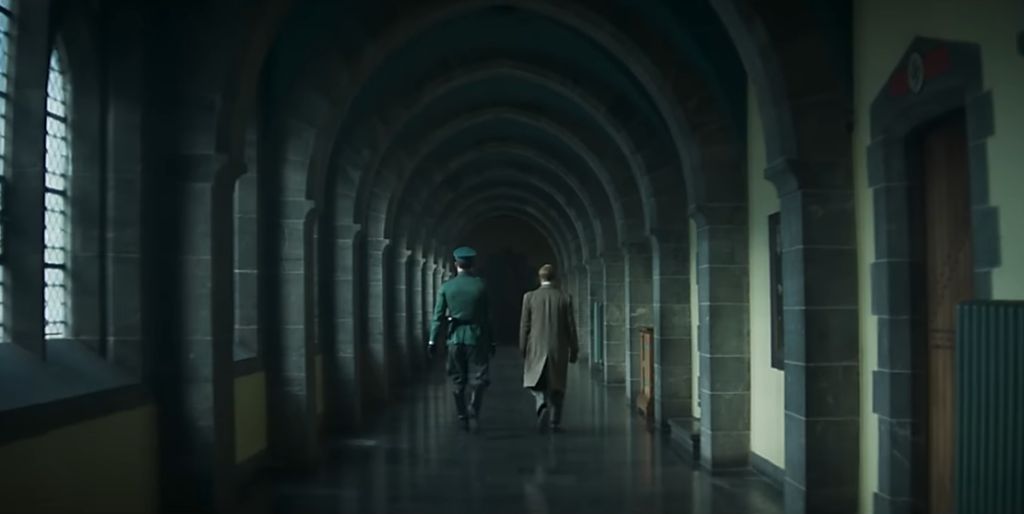
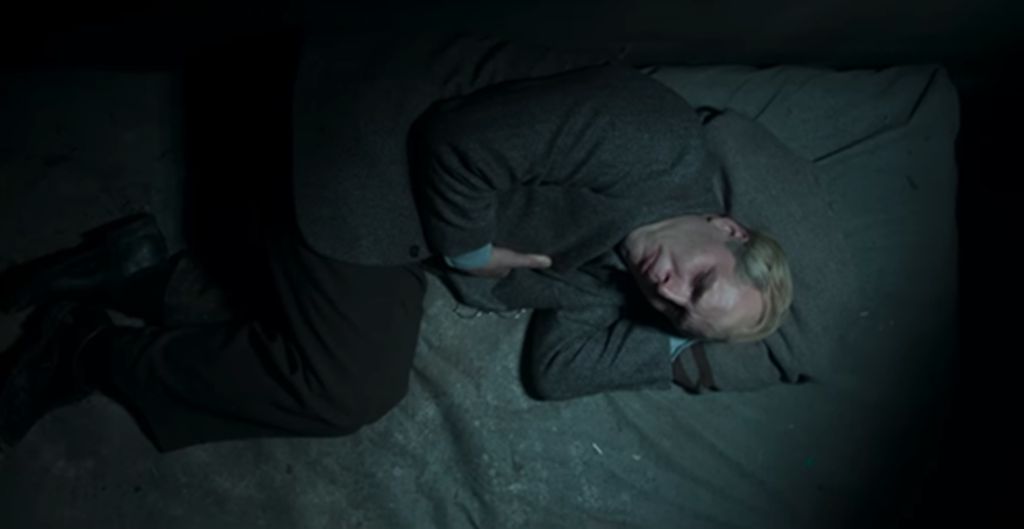
In my mind, there are only three problems with Bonhoeffer. Firstis the portrayal of Hitler, which is simply not convincing enough, although there is laborious build-up leading to a basically cameo appearance. Second, the promotional movie poster features Bonhoeffer casually carrying a handgun. To the best of my memory, the Bonhoeffer of the movie never held a gun: He was a conscientious objector! Third, it will be difficult to interest contemporary audiences with Bonhoeffer, because it is history and—which will the biggest turn-off to some—a biopic of a Christian man.
Which leads us to the question, how does this movie present the Christian faith? For one thing, Bonhoeffer doesn’t offer your typical honied clichés about heaven. It actually contains more solid truth than most “Christian” movies. Although I would submit that perhaps the film doesn’t include enough of the gospel message to be clear enough to an unbeliever, I do think the overall strength of Bonhoeffer’s Christian faith is highlighted in a visible way. My guess is that, after viewing the film, the unbeliever will walk away feeling as if his life is missing the power apparent in Bonhoeffer’s, while the Christian will have renewed awe at what Christ can accomplish through His people. The film’s overall message is driven home by the end credits song, “Then I Will”, sung by Lauren Daigle.
Dietrich Bonhoeffer’s story should move millions, and probably will. Hopefully this film becomes a classic. If not, it will be because it’s too nakedly truthful to be granted acceptance in the darkened culture of our day. You have nothing to lose by watching this movie. It’s one-hundred percent worth it. I kid you not.





